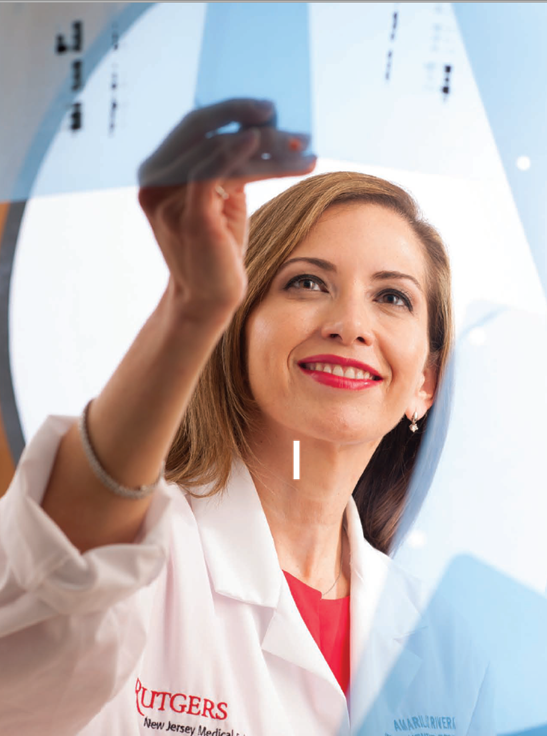
Rutgers Researchers Continue to Combat COVID-19 One Year into a Global Pandemic
Since its launch a little over a year ago, the Rutgers University Center for COVID-19 Response and Pandemic Preparedness (CCRP2) has racked up a remarkably long list of research accomplishments. From setting up safe protocols for working with the virus to conducting clinical trials on vaccines in partnership with private and public organizations, "we went from zero to 60 in a matter of weeks," said Dr. David Alland, the center's director. "It was quite a challenge."
Alland remains, he said, astounded by the progress of the center, which, in this short period of time, has established itself as the university-wide institutional hub for COVID-research activities and information dissemination.
The Rutgers University Center for COVID-19 Response and Pandemic Preparedness' work so far has included:
- Awarding $800,000 in pilot grants in conjunction with the chancellor's office, the New Brunswick campus and the Rutgers School of Public Health to 36 applicants doing research on COVID-19.
- Performing clinical trials of the Moderna COVID-19 vaccine and studying antibodies to treat and prevent COVID-19.
- Designing a new rapid test that can detect the three new variants of the coronavirus in a little over one hour.
- Participating in laboratory studies with Colgate that showed that toothpastes containing zinc or stannous and mouthwashes with cetylpyridinium chloride (CPC) neutralize the coronavirus by 99.9%.
- Providing advice and expertise to local, state and regional organizations ranging from the Metropolitan Transit Agency (MTA) to the New Jersey prison system.
"We also fielded calls and emails from the public," Dr. Alland said, adding that he personally answered every email that was sent to his inbox.
From treatments to sterilize the air people breathe to the surfaces that people interact with to the presence of antibodies against COVID-19 in symptomatic patients and asymptomatic persons in the community of Newark, "we've done studies on every aspect of COVID," Dr. Alland said.
He attributed the center's success to its "superb lab facilities" and its "group of scientists who have broad experience from basic science to clinical trials who have worked tirelessly to get studies initiated and completed in record time."
CCRP2 is within the Rutgers Institute for Infectious and Inflammatory Diseases (i3D). Dr. William Gause who is the director of i3D, is working to examine changes in immune function during COVID-19, which can lead to harmful inflammation that likely contributes to long-term effects of COVID-19 (called Long Covid,) which is increasingly being recognized as a major health issue.
Through i3D, he has supported the development of new experimental models that may allow us to understand how COVID-19 triggers a variety of disorders ranging from persistent respiratory problems to impaired cognitive function.
Dr. Gause said that "new treatments targeting specific control of COVID-19-induced harmful inflammation may be critical in reducing the severity of these long-term effects."
Dr. Alland noted that Drs. Bishr Omary and William Gause "were instrumental in supporting the center's activities" and that Drs. Padmini Salgame, Amariliz Rivera-Medina, Maria Gennaro, Abraham Pinter, Selvakumar Subbian, Padmapriya Banada, Jason Yang and the center's associate director for public health, Henry Raymond, made especially notable contributions to the scientific mission of the center.
"We've also received amazing support from the Rutgers administration," he said. "They worked to get things reviewed and approved at lightning speed so we could get to work quickly."
As it continues its work on all aspects of COVID-19, the center is gearing up for the next pandemic, which Dr. Alland said is all but inevitable.
To be prepared for it, Dr. Alland wants to establish what he called a "COVID-19 Core" – a group of staffers based at the center who are available to perform research, such as testing the effectiveness of new drugs on the virus, for scientists from Rutgers and around the world who do not have the time, skills or the facilities to directly work with high-threat biological agents.
"We need to be able to spring into action on all fronts just as we did for COVID-19," he said.
To learn more about the Rutgers University Center for COVID-19 Response and Pandemic Preparedness (CCRP2) and efforts to combat COVID-19 led by Rutgers researchers, click here.
